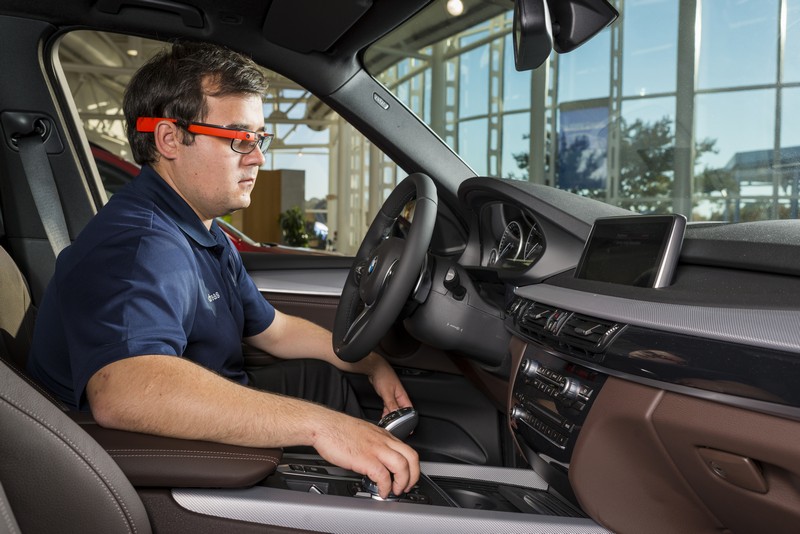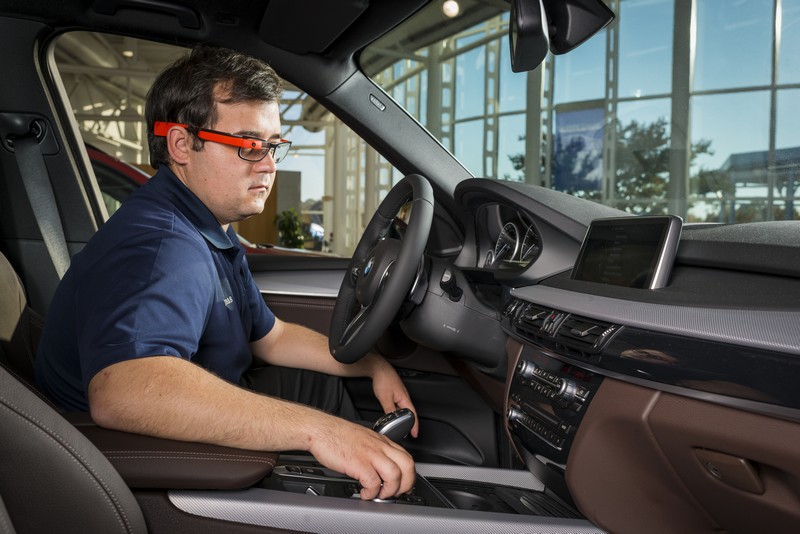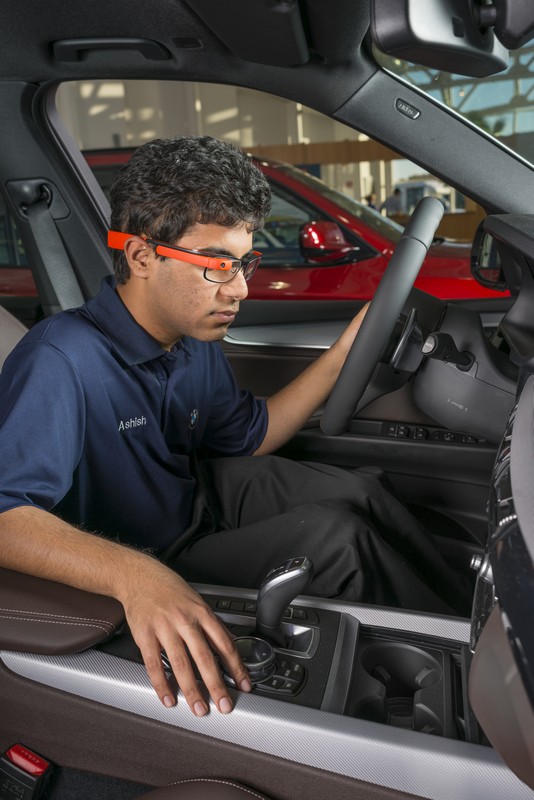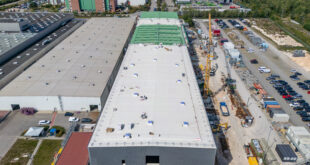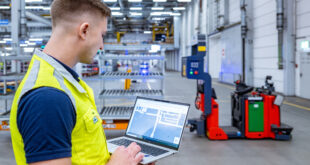Munich/Spartanburg. A picture is worth a thousand words: At present, the BMW Group is running a pilot project at its U.S. plant in Spartanburg that aims at determining whether wearable technology could improve and accelerate the workflows in quality assurance. To this end, workers use Google Glass to record test series with pre-series vehicles. The tool allows them to take photos or videos as a means to document potential deviations, providing a better, faster and clearer way to analyze and correct these later on. Right now, the BMW Group is assessing in which form this innovative pilot application could be transferred to other production areas and sites. The project is an element of the BMW Group’s current Industry 4.0 campaign, set up to evaluate how new technologies can be applied to provide optimum support to workers in production and production planning.
The purpose of the pilot project at the Spartanburg site is to improve the communication between quality testers at the analysis center of the pre-series production on the one hand and the development engineers on the other. The BMW Group runs a complete check of each pre-series vehicle so as to ensure the required premium quality of all vehicles in the subsequent series production. Previously, potential issues identified in pre-series vehicles were documented in writing. Often enough, the problem description was too vague, thus prompting further questions from the responsible specialist department in about one in four cases.
Video call system to clarify matters directly at the vehicle.
The smart eyewear now makes it possible for the staff at the analysis center to add photos and video sequences to their reports. The optical head-mounted display is fitted with a camera that has three different settings: photos, video recording, and background video. In the latter mode, the camera is permanently turned on; every two minutes, the video images are stored temporarily and can be later transferred to a BMW Group plant server for permanent storage at the push of a button. This is a great advantage especially when malfunctions cannot be reproduced clearly. ‘During the term of the pilot project, we are planning to add a video call feature so that a problem can be discussed with the responsible development areas right there and then,’ explains project coordinator, Dr. Jörg Schulte.
So far, the results of the pilot project have been so promising that an application in the final assembly of series vehicles is being considered. In this area, inspections are carried out according to test plans and then documented on stationary computer terminals. Depending on a car’s equipment package, between 10 and 25 individual tests have to be completed. To document them, the testers have to go back and forth between the car and the terminal. ‘With Google Glass, the testing staff could stay right at the vehicle, look at the test plans on the device’s integrated display and sign them off via voice control. So both hands would be free to conduct the tests at all times,’ Schulte adds.
Industry 4.0 at the BMW Group.
The BMW Group has a state-of-the-art production network that is developed further on a continuous basis. Some of the approaches summarized under the term ‘Industry 4.0’, which are currently the subject of public debate, have previously been introduced at the BMW Group or are in their rollout stage. For the BMW Group, Industry 4.0 does not mean production without people, and also not necessarily increasing automation. In this context, the main issue is the reasonable application of new technologies so as to provide ideal support to the workers in production and production planning. One example is sophisticated human-robot systems that can significantly improve ergonomically unfavorable work procedures. As the digital and the physical worlds grow closer together, new opportunities arise that allow people to cooperate more efficiently in the BMW Group’s global production network. Mobile assistance systems will offer improved support to production workers in the future. In all these efforts, the focus is not on the technical feasibility, but on the specific benefit in production technologies that actually reaches the end customer.
 BMW.SG | BMW Singapore Owners Community The Ultimate BMW Community – Established Since 2001
BMW.SG | BMW Singapore Owners Community The Ultimate BMW Community – Established Since 2001



